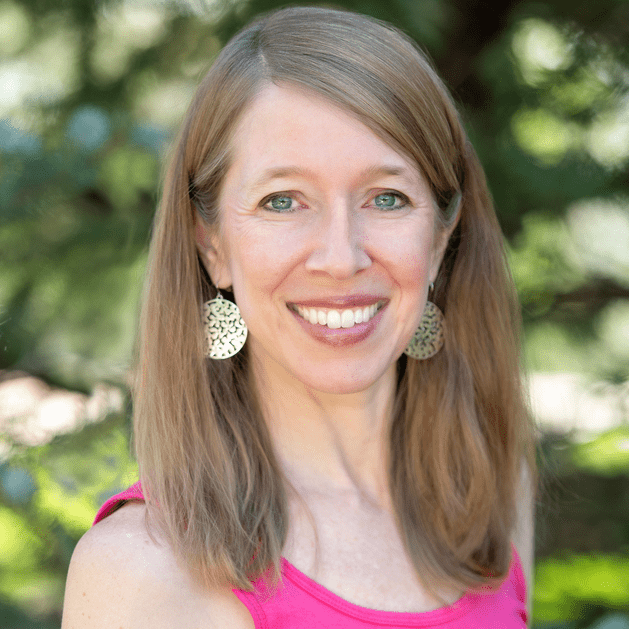What Is Empowered Parenting?

Empowered parenting is parenting with the good of the relationship in mind.
In short, it’s what helps connect us emotionally to our family. It's the healer of wounds; the sage advice-giver in our mind that prompts us to choose being close more than being right. It enforces healthy boundaries in ways that help children feel seen and heard — and helps parents feel seen and heard, as well.
Empowered parenting may or may not align with attachment parenting or any other particular style. It’s about a way of “being” more than it is about a way of “doing.” At its core, empowered parenting stems from the delight we take in one another — living in a way that offers us joy with our children, and them, with us.
To that end, it’s important to know that empowered parenting is in no way the same as permissive parenting. Consequences and accountability absolutely do exist. Therefore, it’s not linked with any of the negative outcomes of a laissez-faire approach to parenting. We do use and follow through with discipline, remembering that discipline means “to teach” rather than “to punish.”
Empowered parenting can be the key to unburdening ourselves from the hurts that have kept us from the true, deep, and lasting connections we’ve missed for far too long.
Why are we just hearing more about empowered parenting now?
Empowered parenting is, indeed, getting a lot of notice. Almost everywhere we can now find books, news articles, and social media posts about how to be a more peaceful parent. It seems that everyone and their dog is writing a peaceful parenting blog or sharing a gentle parenting course they’ve heard about.
But what does that mean, really? Is it just another trendy parenting fad? And how is empowered parenting different from peaceful parenting?
There have been many parenting approaches throughout the years, but unlike many of them that have gone by the wayside (for very good reasons), empowered parenting is a trusted way to grow healthy families.
Here’s why we need it, and I'll be blunt: the world is hurting. We are all hurting. Stress and anxiety are skyrocketing, and not just because of the pandemic. We're in a dark place: A wide variety of social, emotional, political, racial, and other issues are all affecting our collective lack of well-being.
In our collective hurts, we want something better; if not for us, then for our children.
Empowered parenting is part of the healing we've all been seeking. We're hearing about this now because perhaps more than ever, we need it.
Empowered parenting offers us a way to raise children who aren't wounded, and therefore, won't inflict their wounds upon others. Rather, it helps us raise children who are more likely to thrive despite the world's adversity.
Will it solve everything? Of course not. It is, however, one giant step towards healing.
How do I practice empowered parenting?
Empowered parenting on a consistent basis has much more to do with our work on ourselves, rather than work on our children. Interestingly, when we do this work on ourselves, we often see surprisingly positive results in our children by default. The work we do to create peace is contagious in the very best way.
We honor our child's development and use parenting tools that align with this.
We do the research to understand what's appropriate behavior for our child's developmental stage. At the same time, we honor their feelings and individuality, and accept that no book by any expert will know better who our child is than we do.
For example, we might learn that it's normal for a baby to wake at night and that sleep will come naturally when the child is ready. We can feel a lot more empathy for our wakeful child when we know how little their tummy is and how much they're genuinely needing nourishment throughout their first years of life.
Further, beyond nourishment, baby is also needing comfort. Life outside the womb is new to baby and having an adult who will listen and respond to their cues is part of creating a secure attachment.
We might also learn that it's developmentally normal for young children to sometimes scream and hit, and act in other seemingly "unhealthy" ways when they're upset. Their brains haven't developed enough yet to support adult-style processing of emotions. The part of the brain that controls impulses simply hasn't developed, and won't develop fully until early adulthood.
We understand that for them, play is the best form of "discipline." Their own play, along with an adult's use of playful parenting strategies, can be used to help young children learn in much more effective ways than punishment could ever teach them.
Likewise, for older children, we connect through everyday moments together. We choose to be present with one another and create a place where all emotions – calm, anger, joy, and all the rest – can co-exist peacefully. We use emotion coaching to help our children manage their big feelings. We model graciousness. And we model how to take care of ourselves to support our own emotional regulation.
With peaceful empowered parenting, we adapt our parenting style to support the child in front of us, and free ourselves from advice that doesn't support their optimal development. For example, empowered parenting is shown to have a positive impact on neurodivergent children.
When we're angry, we use words and actions that model non-violent communication.
We know that it's normal for everyone, including the otherwise most peaceful parent, to get angry sometimes. Anger is a great messenger when boundaries have been breached. However, we don't react from a place of anger; we listen to its message and proactively choose non-violent ways to respond.
"...We learn to hear our own deeper needs and those of others. Through its emphasis on deep listening—to ourselves as well as others—NVC helps us discover the depth of our own compassion. This language reveals the awareness that all human beings are only trying to honor universal values and needs, every minute, every day." – Center for Nonviolent Communication (NVC)
In doing so, we avoid yelling, shaming, and power-based control strategies. Instead, we create relationships based on a sense of peace and mutual understanding.
We collaborate rather than dictate.
We welcome our children's ideas, emotions, and perspectives when we run into problems together. We listen to our children's words about what would work best for them to address conflict together. This doesn't mean we don't set limits, but at the same time, we don't impose rules unilaterally.
We parent from a place of empathy and calm rather than one of reactivity. In doing so, we create a helpful connection that helps our children know that their feelings are valid – that we're on their side.
What about 'peaceful parenting' discipline?
We know that the best way to encourage our children to behave in gentle, loving, respectful ways is to model those ways ourselves. They’ll grow up to do what we’ve done, not necessarily what we’ve said, if our actions don’t reinforce the message.
Additionally, we know that when we’re clear about our needs and expectations while also respecting the same from our children, we’ll grow better together. Sure, natural and logical consequences happen sometimes, but with empowered parenting, we approach them through connection.
How do you do empowered parenting if it doesn’t come naturally?
One of the most effective ways to learn a new skillset is through practice and guidance! Hiring a parenting coach, or training to become a parent coach yourself is a simple way to get this support.
Families who've struggled usually continue to struggle — unless they do something about it. How will you know it's worth trying?
- You're tired of yelling
- You seem to have lost your sense of self and take little enjoyment from parenting
- You find yourself seeking advice and ideas to solve children's problematic behavior, but no matter what you try, problems keep coming up
- Shame and guilt make you feel discouraged, sad, or hopeless after disciplining your child
- You long to be free from power struggles
- You look at other families and wonder how they seem to be happier than yours; and wonder if they really are
If you've ever felt any of these things, you can rest in the knowledge that you're not alone. Many parents before you have felt these things, and then decided to parent their families another way. And they’ve succeeded despite incredible odds to overcome.
They’ve chosen a way that feels so much better – and just like it did for them, it can free you from deep and lasting hurts.
The “how” rests not in great, resounding changes, but in tiny steps you take every day. You can release yourself from the expectation that you need to be perfect or get it “right” every time. No one does this perfectly every time. Just imagine that one thing that would bring you closer to your child – be specific about it – and try it. If it’s hard, try again next time.
Your willingness to keep trying takes you closer to empowered parenting with every attempt.
Next Steps on Your Empowered Parenting Journey
No matter where you are on your empowered parenting journey, you are in a wonderfully connecting place that can make a difference for others. Explore our free empowered parenting course to experience the joy and fulfillment that comes with parenting the way you want to parent!
Perhaps you're looking to focus on the family within the walls of your own home. This is the perfect place to start. In doing this work, you're teaching your family that you see them and respect them for who they are. What an incredible gift that is to a child.
Or, perhaps you're feeling called to act and share your ideas and compassion with others outside your home. If so, you can become a conscious parenting coach and change entire communities for the better. This is your journey, and you have incredible power to do incredible amounts of good.
Contact us today to
find out more about parent coaching and how you can continue changing your heart, your family, and the world with empowered parenting.
Meet Your Author, Sarah R. Moore
Sarah R. Moore is the author of Peaceful Discipline: Story Teaching, Brain Science & Better Behavior, the founder of Dandelion Seeds Positive Parenting, and a Master Trainer for the Jai Institute for Parenting. She's a public speaker, armchair neuroscientist, and most importantly, a Mama. She's a lifelong learner with training in child development, trauma recovery, interpersonal neurobiology, and improv comedy. She helps bring JOY, EASE, and CONNECTION back to families around the globe. Her work has been featured internationally in print, online, on the radio, and on TV. Follow her on Instagram, Facebook, YouTube, TikTok, Pinterest & Twitter.
Share This Article:
Curious for more?














